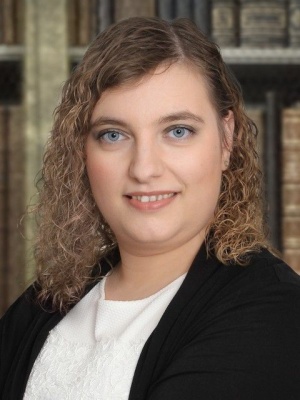Herzlich Willkommen zum Mitglieder-Wiki von Wikimedia Österreich.
Für ein Benutzerkonto schreibe bitte an verein [at] wikimedia.at
Projekte/Universitätsprojekte/Andrea Brait
Interview

Andrea Brait
Historian, Institute of Contemporary History / Institute for Teacher Education, University of Innsbruck
Andrea Brait has cooperated with Wikimedia Austria and volunteers of the Wikimedia Community in the context of various university courses since the winter semester of 2015/2016. A significant outcome of her commitment has been equipping students with the skills needed to understand Wikimedia projects like Wikipedia and Wikiversity in practical use.
From your point of view, how did cooperation with Wikimedia Austria evolve?
- From the start, I experienced a great willingness on the part of Wikimedia to support courses and received lots of assistance. I was particularly impressed by the involvement of volunteers. My deep gratitude goes to my colleague Christian Wagner of the University of Vienna for his first organisational steps. I myself learned a lot about the work of Wikimedia and am now in a position to integrate this medium into the university curriculum in a more independent manner – the next project is already in the pipeline.
In a course at the University of Innsbruck, you devoted yourself to the "basic concepts of HSP teaching"; what is this about?
- The basic concepts are a new element of the curricula newly enacted in 2016 for the teaching of "History, Social Sciences/Political Education (HSP)" in lower secondary level education (AHS Unterstufe and Neue Mittelschule). It is about pupils learning based on central, constantly recurring concepts (work, constructiveness, timelines, etc.). This shall serve to provide classes with a new structure.
- Since considerations regarding the teaching methodology in this context, such as the competence models, are not yet widely known, I thought more detailed information about this would be of interest not only to the students, but to the teachers as well. Therefore, I decided that the students of one of my university courses would write not only classical lesson concepts or scientific papers about this topic, but would also produce something that would then become publicly accessible.
How did you implement Wikiversity for the "basic concepts" and what were your expectations.
- First, the students were given an introduction to the topic during the course; they were also familiarised with the technical aspects of a wiki and the general guidelines of Wikiversity, such as the citation rules. Then the students were asked to create a main page and various subpages – so the aim was to explain the new terms of the curriculum. Based on this approach, they were to acquire the capacity to organise themselves independently in order to achieve a set goal, just as they must be able to later on, in their professional lives, as part of the teaching staff of a school.
- Additionally, on a block-scheduled day during the course, training videos were created on the subject of various basic concepts. I was supported in this by Hans Exenberger who was training as an e-tutor at the University of Innsbruck at the same time – my sincere thanks go to him for his valuable assistance. The training videos were integrated into the Wiki page.
- The aim was a rough overview of this new curricular content. But my expectations were exceeded in many ways. Some very well-researched texts and creative videos resulted that are also appreciated by Austrian history and political didactics. In the meantime, the Wiki page has been linked by Zentrum polis, an important platform which provides further information and materials on the new curriculum of lower secondary level education.
How did you and your students fare throughout this?
- After the students had generated their pages independently, I delivered feedback in terms of form and content on the last block-scheduled day of the course. We then completed the pages together on site. The course feedback shows that most of the students found the course challenging and would recommend it to others.
What advice would you give to other teachers and researchers who also want to work with Wiki projects?
- Working with Wikis facilitates the promotion of media literacy, which is essential to teaching staff in terms of the principle of teaching media education, while it also facilitates introduction to a different text type than otherwise usual in conventional seminars. Such writing skills are particularly important for members of the teaching staff, in particular because they are required to compose handouts and similar texts for students regularly. Wikis can be used very nicely to demonstrate to students what is needed in a presentation that more specifically addresses a wide audience, while still needing to be scientifically substantiated. When they compose a Wiki, students are highly motivated, because they know that their texts, as opposed to seminar papers, will be read by many people.
- During preparation, it strikes me as very important to find a topic that is extensive enough for an entire group of students and is not yet available on Wikipedia. When it comes to finding a suitable topic, I can highly recommend the requested articles list on Wikipedia.